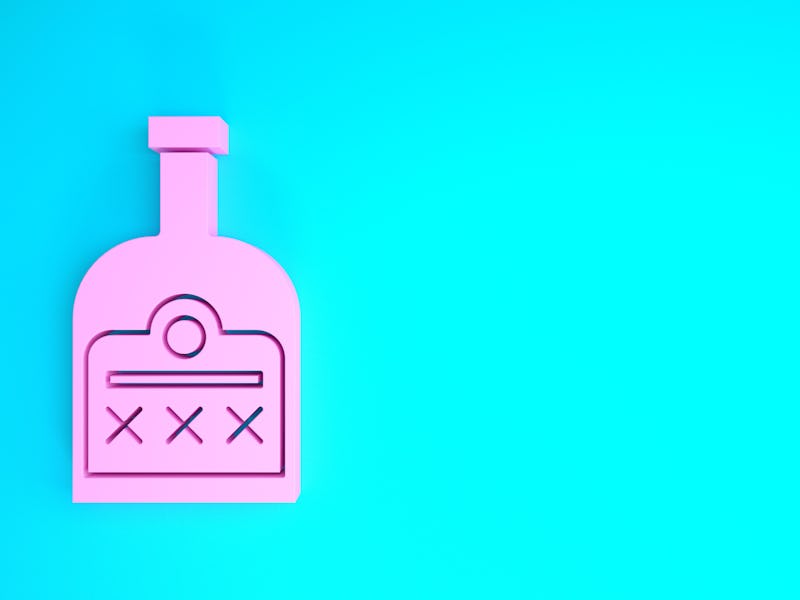The science-backed guide to actually completing Dry January
Temptation is tough, but there’s a way to push past it.

For many New Year’s resolutioners, it’s time to dry out.
The first month of the year heralds Dry January, a now-global movement first started by British organization Alcohol Change UK.
But a quick look at social media, reveals some of us may not be approaching the challenge of staying sober for a month in earnest. In fact, there seem to be as many jokes about Dry January — or ads for non-alcoholic drinks — as there are sincere pledges to try it.
How serious are we about Dry January?
But in truth, Dry January is surprisingly popular, data shows. Research group YouGov estimated in 2019 that one in five Americans were spending the month off the sauce. In a survey, 21 percent of people “said that they think it’s a good idea and they plan to participate in it.”
The problem, like all resolutions, is sticking to it.
Drinking alcohol is a particularly tough habit to break, thanks to the science behind what makes us continue reaching for the bottle.
But science also confirms that taking a break from booze has a number of health and other benefits, so if you’ve made it this far, congratulations.
Here’s your science-backed guide to sticking it out.
Why should you do Dry January?
Proponents of Dry January say the benefits go beyond health and the test of willpower.
Some 88 percent of people saved money, found a 2018 study — and 71 percent of people said they slept better during the month.
Others reported that they lost weight and saw general health benefits.
Not to mention, how good does it feel to not wake up with a hangover?
How to track your Dry January progress
Even with these benefits in mind, it may be tough to stay committed.
Tools like MyDrinkaware and Try Dry can help you set goals and see your progress — like how many days you’ve gone without drinking — and hold yourself accountable.
Seeing those numbers is a reason to celebrate. In fact, rewarding yourself can help you keep going, according to the alcohol education website Drinkaware.
Why you should tell people you’re “dry”
Talking with family and friends about your intentions can help you , Drinkaware reports. It also gives the people who care about you an opportunity to support your choices.
Having a support system is important for curbing drinking, according to [Harvard Health Publishing]. It’s not easy to make such a big change, so knowing that your loved ones have your back can make it seem less daunting.
Support systems ease the transition.
It’s also helpful to surround yourself with people who aren’t drinking, to avoid temptation. Studies have shown that being around another drinker can have an outsized impact on your own habits, especially if you are a man. For the same reason, if you’re trying to stop or cut back, don’t keep alcohol in the house.
Sober You might be the New You
Come for the fad sobriety, stay for the myriad benefits.
For some, Dry January is the start of a new chapter. One Twitter user who tried it last year says it stuck in a major way, posting that ended up staying sober for the entire year.
Being "dry" just might stick.
There’s also a scientific reason that drinking less (or stopping altogether) makes it easier to curb your habits.
As Inverse reported in 2018, one study showed that Dry January-ers were more successful when they had a “lower frequency of drunkenness” during the preceding month.
In other words, the more you drink to the point of inebriation, the more difficult it is to stop or slow down the habit. By the end of Dry January, participants had more confidence in their ability to refuse a drink while socializing, according to the study, published in APA PsycNET.
For those who drink heavily or regularly, it’s important to note that going cold turkey might not be the right choice. Withdrawal symptoms like sweating, shaking, and nausea can cause health problems, so it’s best to consult an expert for advice.
And remember, Dry January doesn’t have to be your thing if you’re looking to make a change. Writer K.C. Clements discusses in The Temper why Dry January isn’t always the right choice, after having participated in it twice.
“The initiative is about taking a step away from drinking for a time but not making any sustainable, long-term life changes,” Clements writes.
“For me, those 31 days were about counting down until my next drink, not about figuring out how to overcome cravings, prioritize self-care rather than self-medicating, or learning to love myself enough to stop doing harm to my body.”
In the end, it’s all about finding what works for you.